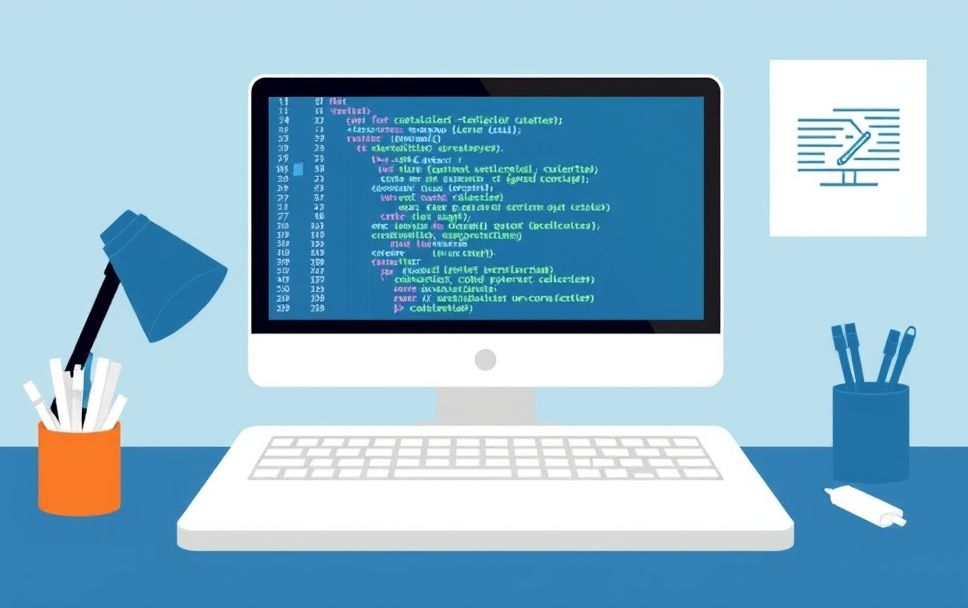Understanding Online Coding Courses
Online coding courses are structured educational programs delivered through the internet, designed to teach individuals how to program and develop software. These courses vary in content, duration, and complexity, catering to a wide range of learners from complete beginners to experienced developers looking to enhance their skills. The growing demand for technology professionals has made these courses increasingly popular, offering flexible learning options that can fit into anyone’s schedule.
The Importance of Online Coding Courses
The significance of online coding courses cannot be overstated in today’s digital world. With the tech industry expanding rapidly, there is a continuous need for qualified programmers. Online courses provide an accessible way for individuals to acquire programming skills without the need for a formal degree. This democratization of education allows anyone with an internet connection to learn at their own pace, making technology education more inclusive.
Accessibility and Flexibility
One of the primary advantages of online coding courses is their accessibility. Learners can access course materials from anywhere in the world, often at any time. This flexibility allows individuals to balance their education with work, family, and other commitments. For example, a full-time web developer might choose to take an online course in Python during their evenings or weekends to advance their skills without interrupting their job.
Variety of Learning Formats
Online coding courses come in various formats, including video tutorials, interactive coding exercises, and quizzes. This variety caters to different learning styles and preferences. For instance, video-based courses can be beneficial for visual learners, while interactive platforms like Codecademy provide hands-on coding experiences that help reinforce concepts through practice.
Key Aspects of Online Coding Courses
To fully appreciate the value of online coding courses, it’s essential to understand their key features and components. Here are some aspects to consider:
- Course Content: Courses often cover a wide range of topics, including web development, data science, mobile app development, and more. This diversity allows learners to choose a path that aligns with their career goals.
- Instructor Quality: Many reputable courses are designed and taught by industry experts, ensuring that learners receive up-to-date and relevant information.
- Certification: Upon completion, many courses offer certificates that can enhance a learner’s resume and demonstrate their commitment to professional development.
Popular Platforms for Online Coding Courses
Various platforms offer online coding courses, each with unique features. Some of the most popular include:
- Coursera: Offers courses from top universities and companies, providing learners with a recognized credential upon completion.
- edX: Similar to Coursera, edX provides access to university-level courses and programs.
- Udemy: Features a vast selection of courses across numerous topics, allowing instructors to set their prices.
- freeCodeCamp: A non-profit organization that offers free coding tutorials and projects for learners at all levels.
Applications of Online Coding Courses
Online coding courses have various applications that extend beyond personal development. Here are some practical uses:
- Career Advancement: Many individuals use these courses to gain skills necessary for promotions or transitions within their current jobs. For example, a project manager might take a web development course to better communicate with their development team.
- Freelancing Opportunities: With coding skills, individuals can take on freelance projects, creating an additional income stream. Websites like Upwork and Freelancer connect coders with clients looking for specific technical skills.
- Entrepreneurship: Aspiring entrepreneurs can acquire the technical skills needed to build their own software applications or websites, significantly reducing startup costs.
How to Maximize Your Learning Experience
To get the most out of online coding courses, consider the following strategies:
- Set Clear Goals: Define what you want to achieve by taking the course, whether it’s mastering a language or completing a specific project.
- Practice Regularly: Apply what you learn through regular practice. Coding is a skill that improves with hands-on experience.
- Engage with the Community: Many platforms have forums or community spaces where learners can ask questions and share experiences. Engaging with others can enhance your understanding and motivation.
Related Concepts in Technology
Online coding courses connect to several related concepts in the tech space. Understanding these can enhance your overall learning experience:
- Web Development: This encompasses front-end and back-end development, which are often covered in coding courses.
- Data Science: Many coding courses focus on data analysis and visualization, crucial skills in today’s data-driven world.
- Software Engineering: Understanding the principles of software development can be enhanced by taking coding courses.
Conclusion: The Future of Learning to Code
Online coding courses represent a transformative shift in how we approach technology education. With their flexibility, variety, and accessibility, they empower individuals to take control of their learning paths. Whether you’re looking to start a new career, advance in your current role, or simply explore a new hobby, these courses provide valuable resources to achieve your goals.
As you consider embarking on your coding journey, reflect on how you can implement the skills you acquire in your daily life. Start small, practice consistently, and engage with the community around you. The world of coding is vast and full of opportunities waiting to be explored.









